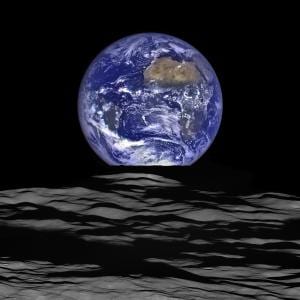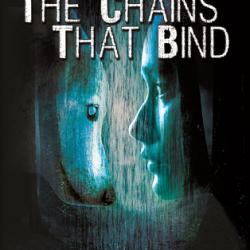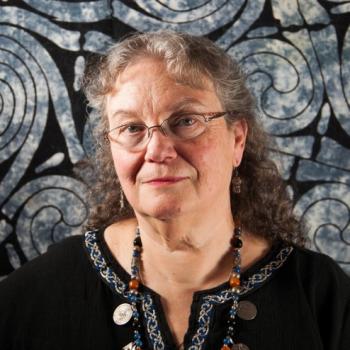Dear Greta Thunberg:
I’m writing to tell you I’m sorry. I’m sorry I didn’t do enough. I’m 44 years old, and my generation has left this big mess in your lap; yours, my childrens’, everyone’s. I thought I was contributing. I thought I was making a difference. I thought wrong.
When I was about the same age you are now, I was one of many young activists who were invited by the Canadian Government to serve as Youth Delegates in a nationwide Roundtable on the environment. In the early stages, they consulted various groups of stakeholders, from the top scientists and highest decision-makers in the country, to forestry workers, to corporations seeking to find a way to “sustainable development,” which was the “reluctantly agreed-upon” term used at the time, to us. In those days, before the aggressive oil and gas lobbyists took control, even most government officials and big corporations seemed to believe the science and want to do something about the problem. Eventually they named the commission the “National Roundtable on the Environment and the Economy (NRTEE),” although I don’t remember hearing anything about “the economy” being mentioned at the symposium I attended.

I was selected because I was recommended by my teachers. They chose to recommend me because I had good grades, worked hard, and they knew I was an activist because I had skipped school to protest the Gulf War (“No Blood for Oil!” we cried. Not that they listened.)
They flew me to Vancouver, which is a city that was only about a five-hour drive from the town I grew up in, the town where I still live. I suppose I should have known how this would go by that alone, but we weren’t as acutely aware of the cumulative emissions of air travel then. They picked us up at the airport in limos and drove us to the fanciest hotel I think I’ve stayed at before or since. I was shy so I don’t remember much about the other kids I shared the room with.
They even took us around the city a bit to do some shopping with a chaperone. Now, I look back at that and shake my head. Egregious capitalism is clearly not in alignment with the needs of saving the planet. But back then, we still hoped that we could find a new, more sustainable way to continue enjoying comforts we’ve all come to take for granted.
The next day, the work began. They set us up in a giant ballroom around enormous, white-covered round tables. There were speeches from government officials and experts. They explained the mission statement: this was intended to be a multi-disciplinary consultation process. We would be offering our recommendations directly to the federal government, and they would read our reports and consider our recommendations. We were split into task groups (our tables) and then the discussion began.
I remember how delighted I was to be there! The other youths who shared the table with me were from all over the province of British Columbia. Their faces were of many different colours; their bodies were of different ability levels. There was a strong Indigenous presence. Unlike any other assignment group I’d ever been part of, they were as serious and as focused as I was. We felt honoured to have been asked for our opinion, and we really wanted to make a difference. So now that our elders were listening, we spoke.
First, we complained about the air travel and the unnecessary pollution it had caused to bring us there. Then we complained about the enormous feast they served us for lunch and dinner in the ballroom, and how much of it was thrown out. They didn’t seem to take that point to heart, but I mention it because so many people who want to throw shade on the efforts of climate activists sneer at us for throwing out garbage or taking airplanes. Even then, we were ready to contribute personally, to make changes at home and in our own lives, and to offer up sacrifices. We had already started recycling, reusing, composting. We had already given up the hairspray that was a necessity of teen fashion in the late 80s, and the hole in the ozone layer was closing.
That evening, they took us to the Planetarium. We watched a show on space exploration and how satellite technology was being used to study what we were then calling “global warming.” Then we watched a laser show set to the music of Pink Floyd. It was my first experience with people on drugs; a couple of young men who were very high fled the theatre from a bad trip, and the fact that they were high had to be explained to me. Gods, I was so innocent. So young.
I still believed what you believe; I believed that my leaders and my elders just didn’t understand, and now that the science was clear, they would do something. I believed that my future mattered to them. I believed that by reaching out to us like this, they were demonstrating that they absolutely intended to do the right thing, and serve the public trust.
I was so naive.
The next day we developed a plan of action. As young people, we believed the best hope for youth was in education. If people were aware of the consequences of continuing to ignore our environment, then surely they would stop! We recommended that the government incorporate environmental science and sustainability into our curriculum. We even laid out much of the process by which this could be done, suggesting approaches to the education process that we felt would be effective for people who were our age. Not letting up on our previous points of personal waste, we demanded recycling and, where possible, composting facilities for our schools. This time, the adults seemed to take us more seriously. They promised they would take it under advisement.
That night, I spent some time writing (even then I was a writer) as I looked out over the Vancouver skyline, out towards the harbour, and I was filled with optimism and hope.
The last day, we only met in the morning, this time to finalize a report that was put together from our recommendations with the assistance of some of the adults. We voted to ratify the several-page document as our official report, and then we all were driven, again in limos, to the airport, to go our separate ways.
I didn’t hear a lot about the Roundtable after that, other than the initial consultations had delivered their reports to the Government. I continued to participate in actions, but I had to leave home in my senior year of high school, and things just went downhill from there.
You see, this was the end of the age of Reagan, Thatcher, and Mulroney here in Canada, and the cheques they’d written with their “trickle-down economics” had started bouncing. They called what happened in the 90s a “Recession.” What really happened is that the rich capitalists fleeced the sheep. Wages stagnated; if you could get a job. In my senior year in high school I was one of the “invisible homeless,” couch surfing while I fought the system so that I could continue to go to school. When I graduated in 1993, Canada was in desperate financial straits. For the first five years of my adult life I worked under-the-table jobs at less than minimum wage because that was all I could get. I didn’t go on to university or college because my parents had spent all our savings just to get by.
When I was 19 I became a stepparent to a three-year-old boy, and everything got worse. I won’t bore you with the details of working as a nanny, a housekeeper, and all the truly sh*tty jobs I did to keep food on the table (sometimes at the expense of heat and power,) culminating with a job as a taxi dispatcher where I was emotionally abused daily, and which did not end until my taxi-driving husband was in a near-fatal accident while we were both at work. But I was so desperate to keep even a minimum wage job that I stayed anyway.
What’s important is that I was by no means alone. Unless the people I grew up with already had money or married it, I watched them, too, become increasingly more desperate, all the while being treated like our poverty was a fault of our character. Our Baby Boomer parents, who had been born at the opportune time to take advantage of unprecedented economic growth, owned all the resources and controlled the political reins of power. We’d keep voting in elections, and our votes would continually be smothered, and even suppressed, by our elders. Friends who had protested the Gulf War and screamed “No Blood for Oil!” next to me went to work on oil rigs.
I never did, and constantly the system attacked me for it. All the government safety nets that were supposed to protect poor people were actively hostile to poor people. You see, Conservative governments believe in cutting “waste,” and most of the things they view as “waste” are programs that aid poor people. A system that was supposed to help me did everything in its power to destroy me instead.
Like I said, it wasn’t just me. In retrospect, I think this was the goal: to keep us too busy trying to get a bite to eat for us to organize. In the meantime, Big Oil and Monsanto and Bayer, Coca-Cola and Nestlé and Proctor & Gamble, and a thousand other big polluting industries, continued to appoint former politicians, who had served their agendas while in office, to boards they weren’t qualified to be on. Slowly, all that work we’d done just quietly went away.
The NRTEE was quietly, and without fanfare, disbanded in 2013, when Stephen Harper’s Conservative government defunded it. By then, even according to its own assessment, it had degenerated into nothing but talk. If you look it up now, they don’t even mention us, the Youth Delegates. That is, unless we fell under the heading of “qualified experts,” which somehow I doubt. That’s how little this thing, which meant so much to me at the time, mattered to them.
I had one consolation. When I took my son to parent-teacher nights, I discovered that the education programs that we had suggested — the very policies and approaches that I had taken a hand in shaping — were indeed being implemented in my son’s classrooms. Yes, they had a recycling bin, too. A big one.
I guess it was a start. But it sure as hell wasn’t enough.
Was anything that we did of value? Did it have any effect at all? Gods know that I and my peers, even those of us who eventually went to work for Big Oil, really tried.
You, Greta, give me hope that maybe, after all, it did mean something. That maybe the education we demanded in our schools bore fruit. Because God knows, here you are, you and your peers! Angry, powerful, impossible to ignore.
And why? Because you, wisely, have learned from my generation’s mistakes. You do not believe them when they tell you they are listening. You know they’re not. You know they’ve betrayed you.
You’re refusing to just go to school and take it to the polls when you’re old enough to do that, because you know, from our mistakes, that it won’t help. You know the system is designed to neutralize you. You know their pretense of “listening” is just to make sure they don’t actually have to do anything. And you’re not going to tolerate that.
You have two advantages we didn’t. That’s the first. The second is that, unlike us, you are not outnumbered. The Boomers are dying off now, and you outnumber them. More importantly, you also outnumber us, Generation X. It’s important because so many of my peers have now sold out to the system, and to live with themselves, they’ve had to convince themselves they did the right thing. They’ve convinced themselves that unchecked capitalism is inevitable, that “you’ll understand as you grow up,” like they did. To admit otherwise would be to admit that they’ve sold out, and they would have to face their shame.
I don’t think they should be ashamed, any more than Amazonian farmers should be ashamed. It’s hard to watch your children go hungry and do without. People do what they must to survive. But now — NOW — they can make it right. There’s still time, though time is short! All they have to do is give up their attachments to ego, admit they’ve made a mistake, and stand with you.
So, for what it’s worth, I’m sorry. I’m sorry I believed them when they told me they were listening. I’m sorry for every part I’ve played, wittingly or unwittingly, to support this corrupt and evil system. I’m with you. I’m coming to the climate strikes, I’m writing about it because I’m a writer, and I’m using my right to vote to demand change. And this time, I’m not going to take no for an answer. And neither should you.
Thanks for speaking out. You have my one hundred percent support. Because now, more than ever, this little blue marble needs you. Needs us.

If you’d like to read the archives of the reports from the National Roundtable on the Environment and the Economy, you can search through it here.
















